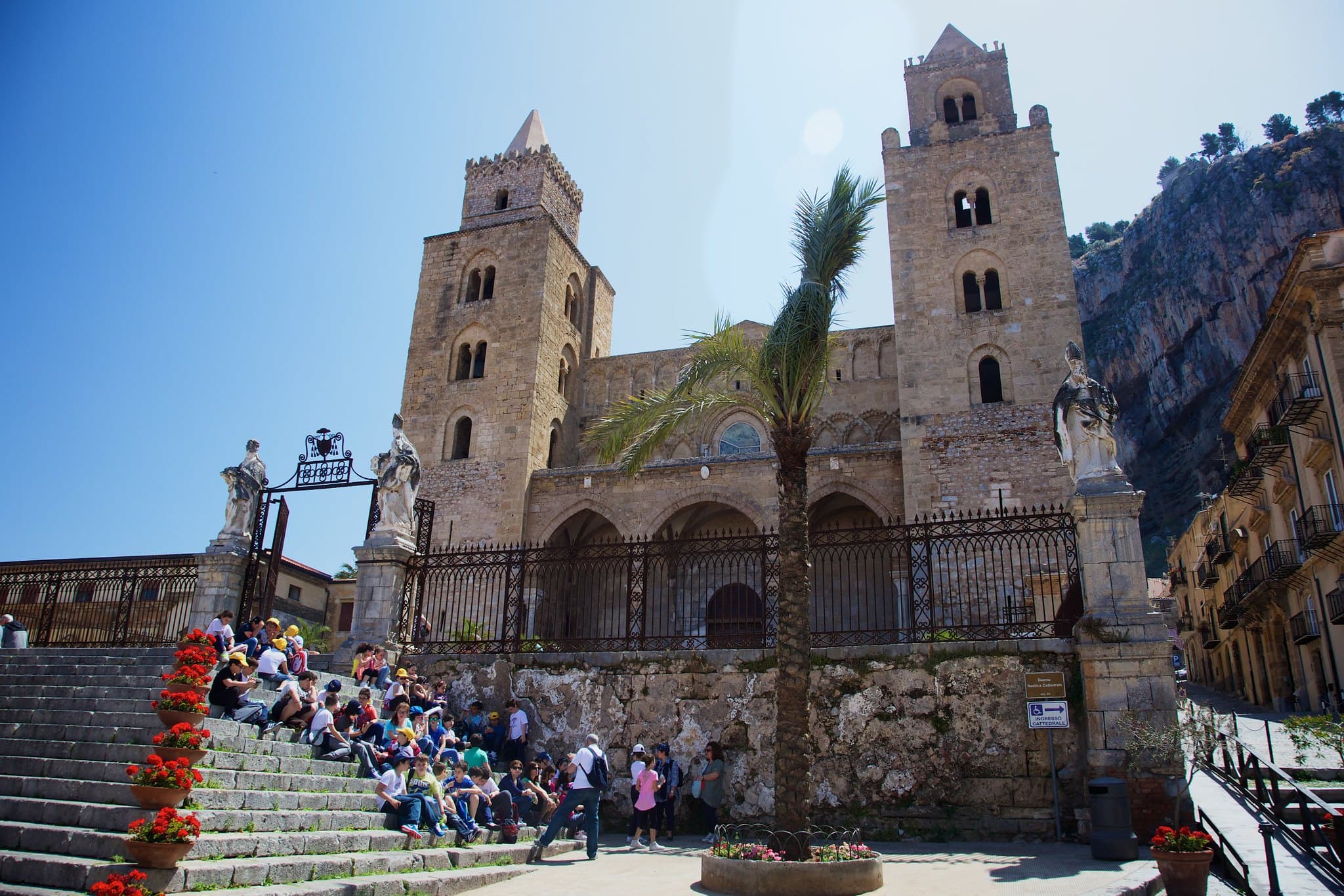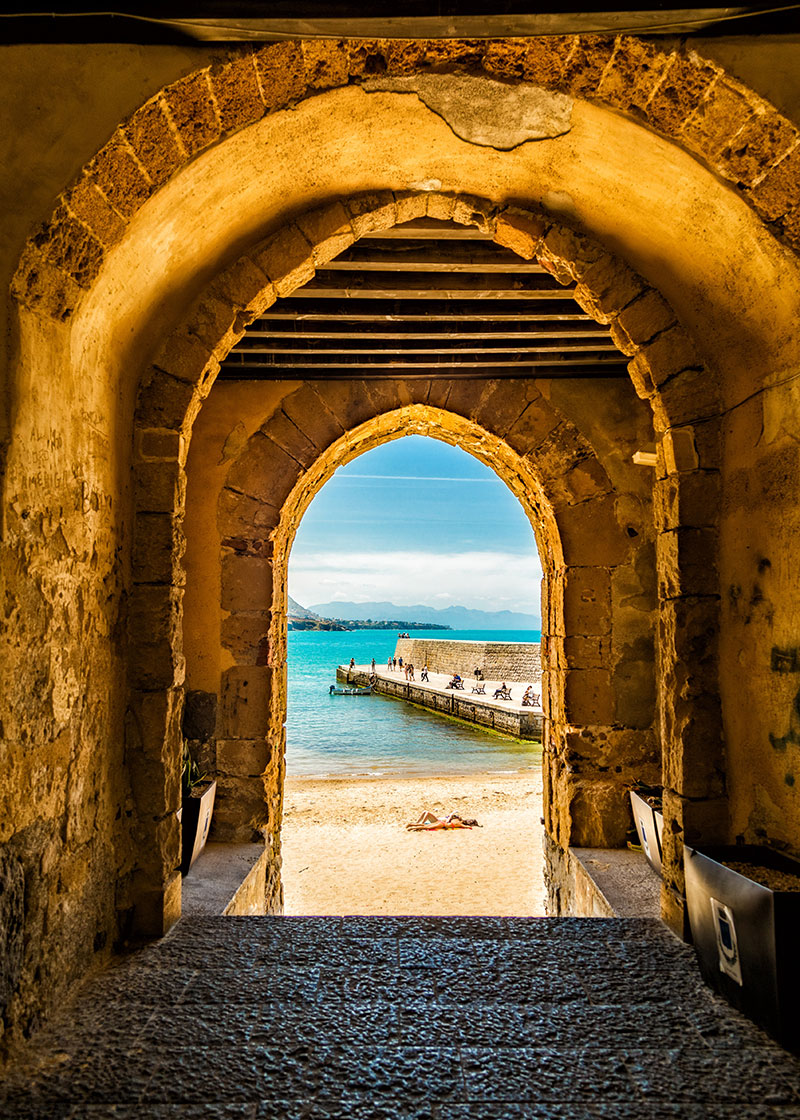The sea Cefalù

Cefalù - UNESCO world heritage
The myth of the rock and the cathedral
Kephaloidion, the Greek name of the city, is one of the most beautiful seaside villages in Italy that stands out for its urban liveability and historical and naturalistic interest. The history of Cefalù embraces myths and centuries of culture.
A Greek myth tells of the sad love of the beautiful shepherd Dafni, the Sicilian Orpheus. Blinded by an enraged Juno for having betrayed his daughter Echenais, he was transformed by a merciful god Mercury into the imposing precipitous rock that dominates Cefalù and whose shape gave the city its name. Thanks to its artistic and cultural heritage, Cefalù has been included by Unesco within the Arab-Norman itinerary including Cefalù, Palermo, Monreale and neighbouring sites. Crossroads of civilizations, from the Greeks to the Romans, passing through the Arabs and the Normans, it develops around the Cathedral.
Cefalù offers splendid walks for recreation and art discovery, such as a visit to the Mandralisca Museum, and in the summer period, the opportunity to spend a day at the beach immersing yourself in the mythical and sparkling Mediterranean Sea.
A Greek myth tells of the sad love of the beautiful shepherd Dafni, the Sicilian Orpheus. Blinded by an enraged Juno for having betrayed his daughter Echenais, he was transformed by a merciful god Mercury into the imposing precipitous rock that dominates Cefalù and whose shape gave the city its name. Thanks to its artistic and cultural heritage, Cefalù has been included by Unesco within the Arab-Norman itinerary including Cefalù, Palermo, Monreale and neighbouring sites. Crossroads of civilizations, from the Greeks to the Romans, passing through the Arabs and the Normans, it develops around the Cathedral.
Cefalù offers splendid walks for recreation and art discovery, such as a visit to the Mandralisca Museum, and in the summer period, the opportunity to spend a day at the beach immersing yourself in the mythical and sparkling Mediterranean Sea.

Cefalù and the cinema
Porta Marina
There are several romantic glimpses of Cefalù that have been the set for famous films in the history of cinema. Like the marvellous Porta Marina with its Gothic arch, the only remaining gate of the four that once guaranteed access to the city.
The arch overlooks the colourful fishermen's quarter where the scenes of the famous film "Nuovo Cinema Paradiso" by Giuseppe Tornatore were shot. Then we remember the 1954 film "Vacanze d'amore" with prestigious artists of the time such as Walter Chiari and Domenico Modugno, "A ciascuno il suo” with Gian Maria Volontè of 1967 and the aforementioned masterpiece by Tornatore from 1988.
The arch overlooks the colourful fishermen's quarter where the scenes of the famous film "Nuovo Cinema Paradiso" by Giuseppe Tornatore were shot. Then we remember the 1954 film "Vacanze d'amore" with prestigious artists of the time such as Walter Chiari and Domenico Modugno, "A ciascuno il suo” with Gian Maria Volontè of 1967 and the aforementioned masterpiece by Tornatore from 1988.





